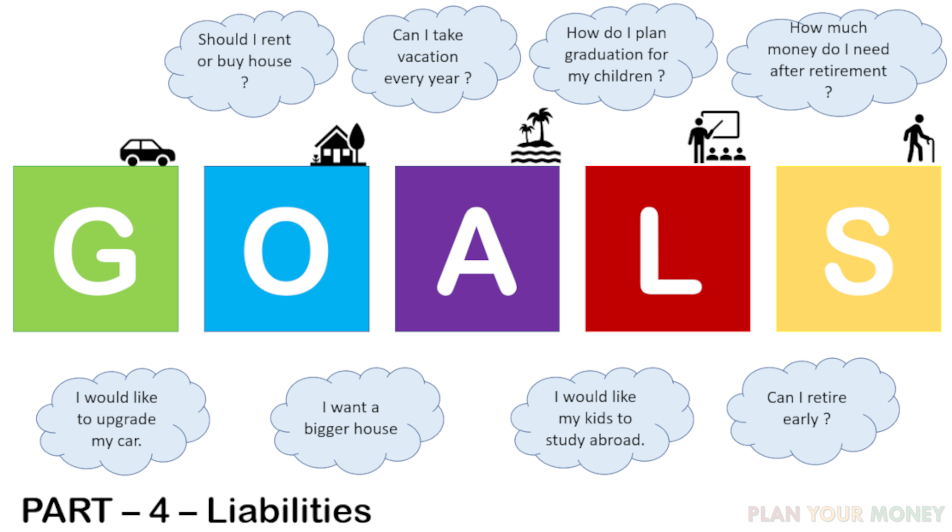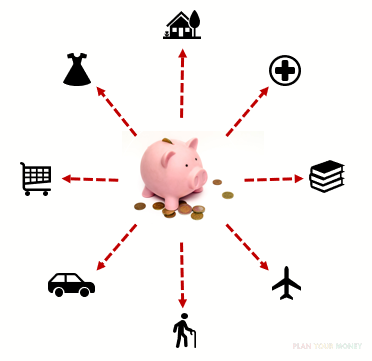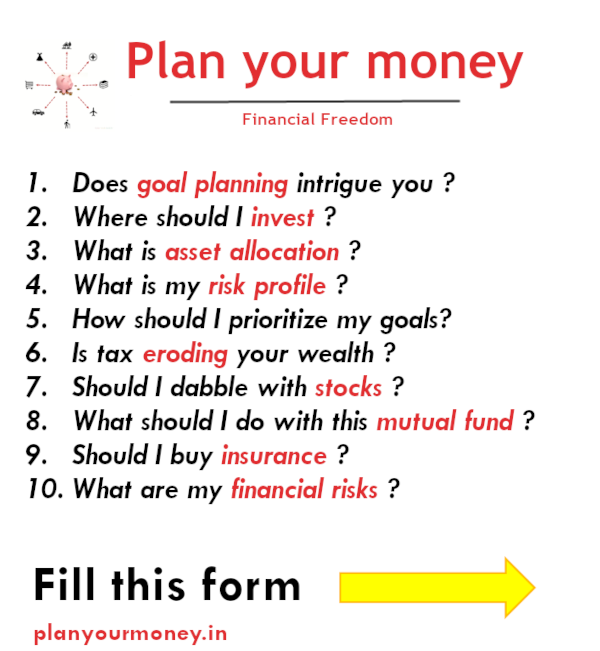Goal Planning - Liabilities - Part 4
Whom do I owe money ?

I was living in a rented house since 2005 when I moved from my parent’s house. Buying a house was quite expensive and I was unsure that I would work so long. Tenure for loans were 15-25 years. EMI’s were more expensive than the rent. I was not sure of many things while buying a house :
- Will this place have water ?
- Will it be as crowded / traffic congested as any other place ? (this was in 2007)
- Will we have proper documents ? ( I didn’t know what meant by ‘proper’ documents)
- Does it have more amenities than the other apartment that we saw ? (no idea why we needed amenities - then !)
- Can I afford it ?
My father often used to quote :
Neither a borrower nor a lender be, for loan oft loses both itself and friend, and borrowing dulls the edge of husbandry. - Shakespeare in Hamlet
However, my father thought that buying a house would be the right thing to do. I relented and did buy the house and looking back seems like I did the right thing.
However, as the prices have gone up, we are now taking loans for education, car and even personal loans to fulfill our obligations, needs and/or wants. In the same breath, I would like to quote Gandhi :
The world has enough for everyone’s need, but not enough for everyone’s greed. - Mahatma Gandhi
What is a Liability ?
- Investopedia defines liability as
-
something a person owes to someone.
All your loans including home loan, personal loan, overdraft, gold loan, education loan and even your credit card is considered as a liability .
1. What are the different types of loans ?
There are many types of loans and I have listed the common ones below :
- Personal Loan
- Personal Loan is generally taken for emergency cases where you need money urgently and you are falling short in your bank to make that payment
- Vehicle Loan
- Vehicle loan is when you want to buy a car and the car is 30-40% more than what you can afford with your bank account.
- Education Loan
- Education loan is taken to assist a student for higher education
- Overdraft
- This is the facility provided by bank when your account balance reaches zero.
- Gold Loan
- You pledge your gold and the bank / NBFC provides you a loan.
- Home Loan
- Home loan is taken to aid the purchase of a house
2. Identify your loans
If you are in your 30’s or mid 30’s, you would generally have two to three loans running:
- Home Loan
- Car Loan
- Education Loan (you may have closed it)
Once you have identified your loans, you need to identify the following items :
- Interest Rate
- Outstanding principal
- Number of years
- EMI
This will help you determine the cash outflow from your salary.
3. What should I do with my loans ?
This is a generic piece of advice for your loans. I would suggest that you should close your loans which has the highest interest rate first and try to close all your loans as quickly as possible. Closing your loans would be your first step towards financial freedom.
Below are the interest rates which I found at SBI website (these rates change on a periodical basis) :
- Home Loan (lowest interest rate - 6.95 % )
- Car Loan - 7.75%
- Education Loan - 9.3 %
- Gold Loan - 9.90 %
- Personal Loan - 10.5%
Things to review
Whenever you go for a loan, ask yourself,
- Do I really have this need to purchase ?
- If yes, do I really have to take a loan ?
- Can I repay the loan early ?
- Will I be able to afford the EMI ?
Please note that loan is a “current” liability . You owe money to someone else as of now. However, if you are married and have kids, you will also have “future” liabilities which include :
- School education,
- Marriage of children and
- Retirement


